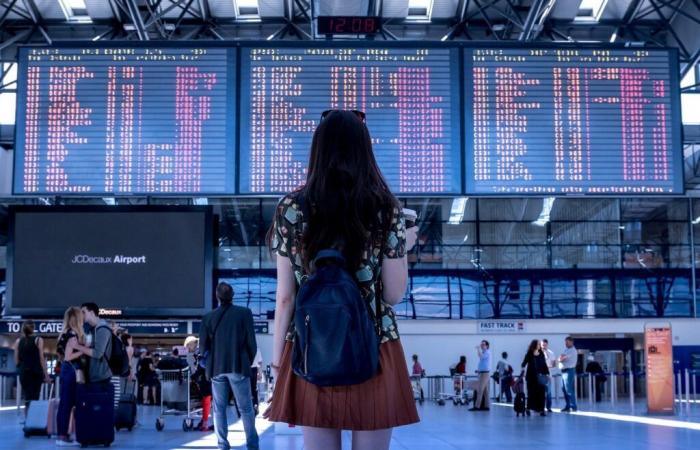Amélie de Montchalin, new Minister of Public Accounts, confirms the increase in the tax on plane tickets, despite opposition from airlines. A measure justified by fiscal and ecological objectives, but criticized for its economic and social repercussions.
The tax on plane tickets, a controversial tax lever
After a period of uncertainty linked to the fall of the Barnier government, the increase in the tax on airline tickets (TSBA) resurfaces. In an interview with ParisianAmélie de Montchalin, Minister of Public Accounts, affirmed her support for this measure. “ I am in favor of it. It is a measure of fiscal and ecological justice “, she said, pointing the finger at the responsibility of the wealthiest 20%, responsible for the majority of spending on air travel.
Initially proposed in the 2025 budget, the TSBA reform plans to double, or even triple, its revenues, from around 460 million euros to one billion. Fares, according to Air France, would rise significantly: for domestic and European flights, the tax would increase from 2.63 to 9.50 euros in economy class, and from 20.27 to 30 euros for business class. Long-haul flights would see the tax reach 40 euros in economy and 120 euros in business class, compared to 7.51 and 63.07 euros currently.
The announcement reignited the anger of carriers. Ryanair, European leader, threatens to halve its presence in France. “ This type of measure risks making air transport inaccessible to a large part of the population and penalizing the attractiveness of the country. “, lamented a leader in the sector. The National Aviation Federation (Fnam) and French airport operators have also warned of a loss of competitiveness compared to other European hubs.
Airlines are on a roll
The companies point to a double penalty: not only could the additional costs slow down demand, but they would also reduce the sector's capacity to invest in the ecological transition. « Aviation needs investments for its decarbonization, not new taxes that suffocate the market », worries another professional.
Despite this outcry, the government remains determined. The minister emphasizes the ecological and redistributive nature of the TSBA, recalling that it is also a lever for financing solidarity projects, particularly in Africa. Part of public opinion also supports this approach, considering that the aviation sector must contribute more to the climate effort.
The relaunch of the TSBA illustrates a complex dilemma between taxation, ecology and economic competitiveness. If the government intends to carry out this reform, it will have to navigate between citizen expectations and the realities of a rapidly changing strategic sector.
A reaction? Leave a comment
Did you like this article? Subscribe to our free Newsletter for engaging articles, exclusive content and the latest news.






